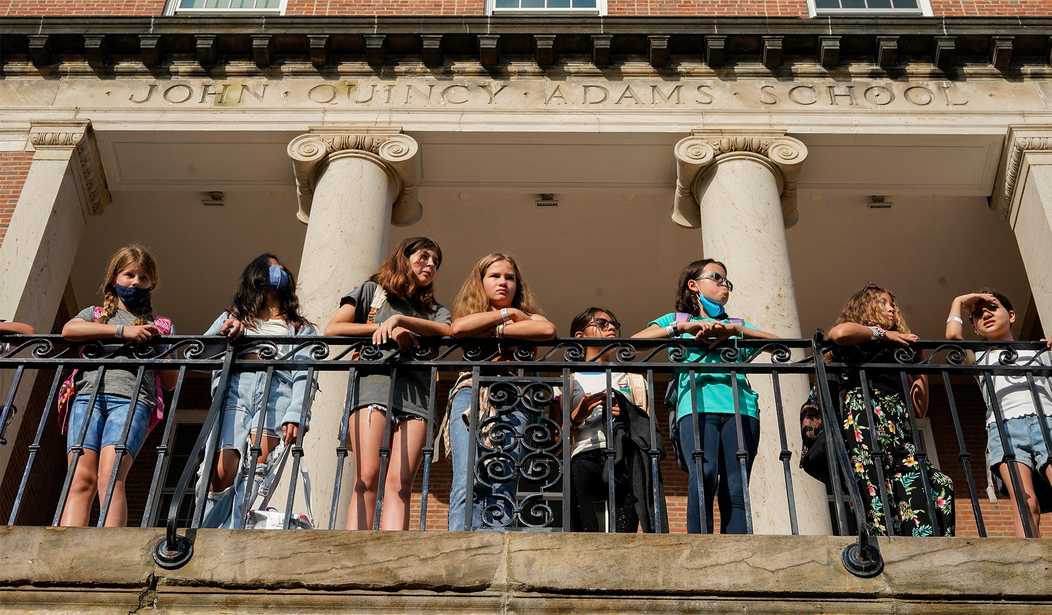Now that life has mostly returned to normal after the two-plus year slog of COVID, many of the most intolerant, dogmatic Covidians are pretending that it all never happened. “Schools were closed for only three months!” declared Michigan Governor Gretchen Whitmer at a recent debate, which is an obvious falsehood that her opponent Tudor Lake quickly refuted. “Learning loss isn’t that big a deal!” say teachers unions. A recent Wall Street Journal article laughably argued that California kids did just dandy under the school-closing, remote-learning, COVID-pass-required regime.
Author and feminist activist Naomi Wolf has been an outspoken critic of the governmental pandemic response, has been banned from Twitter, and lost the love of many friends and family. She is now widely derided by her former tribe on the left as a conspiracy theorist and purveyor of “misinformation.” Whatever you think of her strong views, she has a right to express them.
Dear @elonmusk
Please allow Dr. Naomi Wolf back on Twitter. She's continued to seek truth despite all the slurs and lies she's had to endure.
Her book is a must-read pic.twitter.com/egHkpJQXQQ— SpikedOne (@OneSpiked) October 31, 2022
On October 26, she wrote movingly on Substack about where her principled stances have now left her. Her piece almost comes across as a response to the recent ridiculous article in The Atlantic that’s created controversy, about declaring a pandemic amnesty (I’m sure you can guess who the writer thinks is deserving of forgiveness). This, however, was actually written first. She describes her once-idyllic community in the Hudson Valley of New York state, saying that it can appear like a Norman Rockwell painting, but then explains:
It sure looks that way, anyway.
But these days, I am obliged to maintain a fervent inner monologue, just so I can pleasantly go about my business in the local hardware store, in the local florist, in the post office.
Because an emotional massacre has taken place in these little towns. And now we are expected to act as if — this never happened at all.
An emotional massacre?
But psychically, emotionally, there is blood flowing in the streets; and bodies are stacked up, invisible, in front of the candy stores, the high end wine stores, the pretty memorials to the World War Two dead; outside the farmers’ market on Saturdays, outside the tapas bars.
Those are pretty strong words. But she’s not wrong about the gut punch it was to be Othered by those who claim to be tolerant and inclusive. She goes on to describe the shaming and rejection she endured because she didn’t bow to the mRNA vaccine gods:
I forgive these young people who just wanted jobs, and who had to discriminate in the most heinous and scarring way — scarring to me, and to them too no doubt — just to keep their jobs. I forgive them. I forgive them for the mortifying scene they had to cause.
I forgive the movie theatre owner for shouting at me defensively when I questioned this policy.
She cites plenty more examples of how her town went from a lovely, friendly place to a suspicion-filled, intolerant society where the “good” were accepted and the “bad” were excommunicated, not allowed to attend church, break bread with family members, even go to movies. Was the rupturing—of countless small towns, of families, of children’s lives—worth it? No:
The viral clip of the Pfizer marketing rep, admitting to the European Parliament that the mRNA vaccines never stopped transmission, should make every single one of these moments, into a source of deep embarrassment and self-criticism for all those people — all of them —- who inflicted these violations of privacy on others, or who excluded in any way, their neighbors and fellow countrymen and women. They did so, it is clear now to all, on the basis of arrant nonsense.
She’s willing to forgive:
But meanwhile, I forgive them. I have to. Because otherwise the rage and sorrow would exhaust me to death.
I forgive them, because my soul instructs me that I must.
But I cannot forget.
Are we supposed to just pick up again, as if emotional limbs were not crushed, as if emotional hearts and guts were not pierced, as if with sharp objects? And that, again and again?
She asks a profound question: can we forgive those who shamed people, ostracized them, bullied them? It might help if they ever apologized. But they haven’t, and they won’t:
Have you seen anything like this? I haven’t. Not one conversation. Not one sign. Not one article. “My friend, I was a beast. How can you forgive me? I behaved so badly.” Have you heard that? No, nothing…
Can this nation, which fell so far short of its true identity and its founders’ intention, ever, ever heal?
Can we heal — we ourselves?
Wolf’s article is emotional and asks important questions about where we go as a nation. Can those who were profoundly affected by the attitudes of their former friends and family members just pretend it all never happened? Read, as they say, the whole thing, then answer that question.
I say, no. We must try to forgive—but we must never forget.














